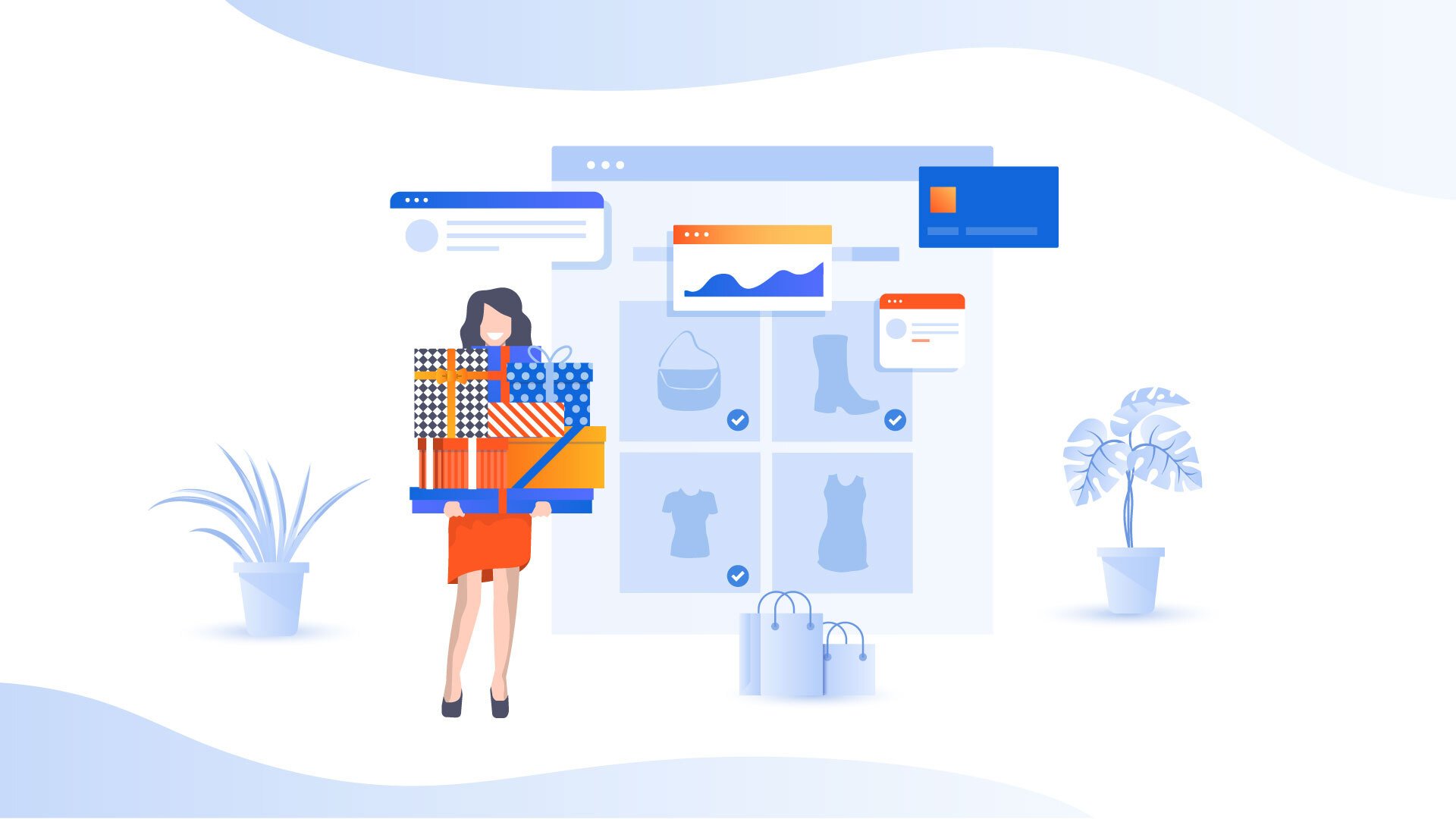Every brand dreams of loyal customers. Building customer loyalty is essential for growth. Companies build strategies and heavily invest to maintain a solid customer base in today’s fiercely competitive business world. Statistics state that it is more profitable to keep current customers compared to acquiring new ones. According to expressanalytics, customer retention costs up to 6 times less than acquisition. Keeping customers loyal is critical for financial success and a reliable brand image.
What Is Customer Loyalty and Why Is It Important?
Customer loyalty means a consistent and positive emotional bond between a consumer and a particular brand, company, or product. Customer loyalty definition centers on the bond between a brand and its customers. Improving loyalty helps businesses increase the willingness of customers to repeatedly engage with them and continue purchases or use services over time. Brands can only manage this by constructing reliability, satisfying their audience, and preserving a mutual benefit. Emotional attachment is also very important and can be achieved through a consistent brand image, originality, and creativity.
In today’s business world, all companies use their full power to have a loyal customer base. Loyal customers keep “repeat purchases” driving a crucial income for businesses. This consistency is extremely critical for a company’s revenue and overall profitability. Also compared to one-time buyers, loyal customers have a higher LTV (Life Time Value) meaning the companies will get more revenue from them in the long run. It is easier to convince them to try new products or services (more profitable ones for the company) and create cross-sell and upsell opportunities. Loyal customers are more likely to recommend brands, products, and services to others. For some businesses “Word of Mouth” marketing still plays an important role in new client acquisition.
As far as the costs are concerned, statistics show that it is more expensive to acquire new customers compared to customers in hand. Imagine marketing and advertising costs for getting the attention of new audiences. By focusing on retention, companies can decrease lead generation costs and improve their ROI.
In some cases, loyal customers act even like fans and support brands with full dedication. Feeling like advocates, they enthusiastically defend the brand and recommend it to their friends, family, and colleagues. They can attract new customers and strengthen the brand’s reputation.
Businesses that consistently deliver exceptional customer experiences and build strong relationships are more likely to stand out from their competitors. For example in the B2B arena, referencing long-term clients brings out the competitive advantage.
Since loyal customers are deeply engaged with the brand, they are more likely to provide honest feedback, suggestions, and insights to the business. Many companies use this valuable information to improve their products and services and even develop better ones.
The world is going through hard economic times, and periods like pandemics deeply hurt financial stability. With loyal customers, brands can stay resilient to market fluctuations and continue their life. Unfortunately, many companies stopped functioning due to a lack of a strong customer base in uncertain times like these.
Customer loyalty plays a vital role in the success and sustainability of a business. By building strong relationships, exceeding customer expectations, and consistently delivering value, companies can foster loyalty, which leads to long-term growth and prosperity. Customer loyalty and retention go hand in hand to empower stable financial power.
What Are The Main Types Of Customer Loyalty?
There can be many reasons that customers feel loyal to a brand. Loyalty can be transactional, behavioral, or engagement-based. Also, customers can feel emotionally or socially loyal to brands.
Satisfied customers
The first step to building loyalty is to satisfy customers. Satisfied customers are happy with the product or service they received, and they are likely to do business with the company again in the future. Besides producing high-quality goods and services, companies need to focus on the delivering best experiences. Listening to customers and rewarding them also strengthens the bond between a brand and its audience.
Loyalty-program loyal
A loyalty-program loyal customer is a customer who is enrolled in a loyalty program and who makes repeat purchases from the business that offers the loyalty. These customers are typically more likely to spend more money with the business and to recommend the brand to others. Companies run programs like point-based, tiered, and cash-back to increase purchases by their customers and make them more loyal. Loyalty-program loyal customers are also more valuable to businesses because they are typically more engaged with the brand. They are more likely to follow the brand on social media, read its blog posts, and sign up for its email list.
Low-price loyal
A low-price loyal customer is a consumer who is mainly motivated by low prices. They are more likely to shop around for the best deals and to switch to a competitor if they find a lower price. However, they can also be very loyal to businesses that consistently offer low prices. Brands can enjoy repetitive sales, competitive advantage, and higher loyalty by satisfying low-price loyal customers. On the negative side, these customers can be very demanding and they are always looking for the best deal. They can also be difficult to retain if a competitor offers a lower price, but for some industries, these customers are the main revenue drivers.
Truly loyal customers
A truly loyal customer is a customer who is emotionally attached to a brand or company. They do not only depend on low prices and loyalty programs with high benefits. They are more likely to make repeat purchases, spend more money per purchase, and recommend the brand to others. They are also more likely to be forgiving of mistakes and to defend the brand when it is under attack. Especially in market instabilities, they support the brand and continue their purchases.
What Is The Key To Customer Loyalty?
Customer loyalty starts with good products and services. Brands need to provide high quality and exceed customer expectations. Consistency in delivering value and meeting needs is the first essential step. Firstly companies should take the subject seriously and develop achievable plans accordingly. Also, they can use professional customer loyalty solutions to form a solid strategy and perform productive and profitable activities.
The products and services should be supported with exceptional customer service. Responding quickly to inquiries, resolving issues efficiently, and treating customers with respect and empathy create a positive impression.
How to Improve Customer Loyalty?
To deepen the connection, today’s brands should focus on creating hyper-personalized experiences. Collecting data and using it to provide perfect recommendations, offers, and communications enhances the customer’s sense of being valued.
Consistency is supercritical. From products and services to every interaction it plays an essential role. Staying consistent across all touchpoints is key to building loyalty and reflects reliability.
Communication should be open and transparent with customers is important. Regularly updating customers about new offerings, improvements, or changes helps keep them engaged. Proactive communication during any service problems also shows a commitment to customer satisfaction.
Implementing loyalty programs, rewards, and incentives can encourage repeat purchases and foster a sense of appreciation. Reward and recognition strengthen the bonds between a brand and its audience. They also help increase revenue and improve profitability.
Gathering customer feedback and using it to improve products, services, and processes is crucial. Showing that customer opinions matter and making visible efforts to address their concerns enhances loyalty.
Building an emotional connection with customers is not easy but it pays off incredibly. Creating a brand identity that resonates with their values and aspirations can form a sense of loyalty and belonging.
Providing value for the price paid is crucial for customer loyalty. Customers want to feel that they are receiving fair value for their investment, whether it’s in terms of the product’s quality, functionality, or overall experience.
Staying attuned to changing customer needs and market trends is essential. Adapting offerings and introducing innovations that address evolving customer requirements can help maintain a competitive edge and keep customers loyal.
What Factors Affect Customer Loyalty?
The main factors that affect customer loyalty can be listed as;
- Satisfying customers and exceeding their expectations,
- Building brand trust and reliability,
- Creating emotional bonds,
- Delivering consistent value,
- Rewarding and recognizing the audience,
- Conducting exceptional customer service,
- Maintaining convenience,
- Delivering hyper-personalized experiences,
- Being active in the social responsibility area.
How Do You Retain Customer Loyalty?
Here are some of the most effective strategies for retaining customer loyalty:
- Be consistent in the quality of your products&services, messages, and delivery of value.
- Deliver “beyond the expectations” experiences and customer service.
- Run trackable loyalty programs that recognize and reward your customers.
- Value the feedback from your customers and take action to improve your products and services.
- Be socially responsible on topics your audience cares about.
- Be proactive and innovative in satisfying your customers.
- Be transparent about your products, service, and pricing strategy.
- Take proper actions to maintain trustability and reliability.
SmartMessage supports brands from many different industries to run more effective loyalty programs with effective campaign management and marketing automation capabilities. Contact us and learn how you can boost the results from your loyalty activities.



